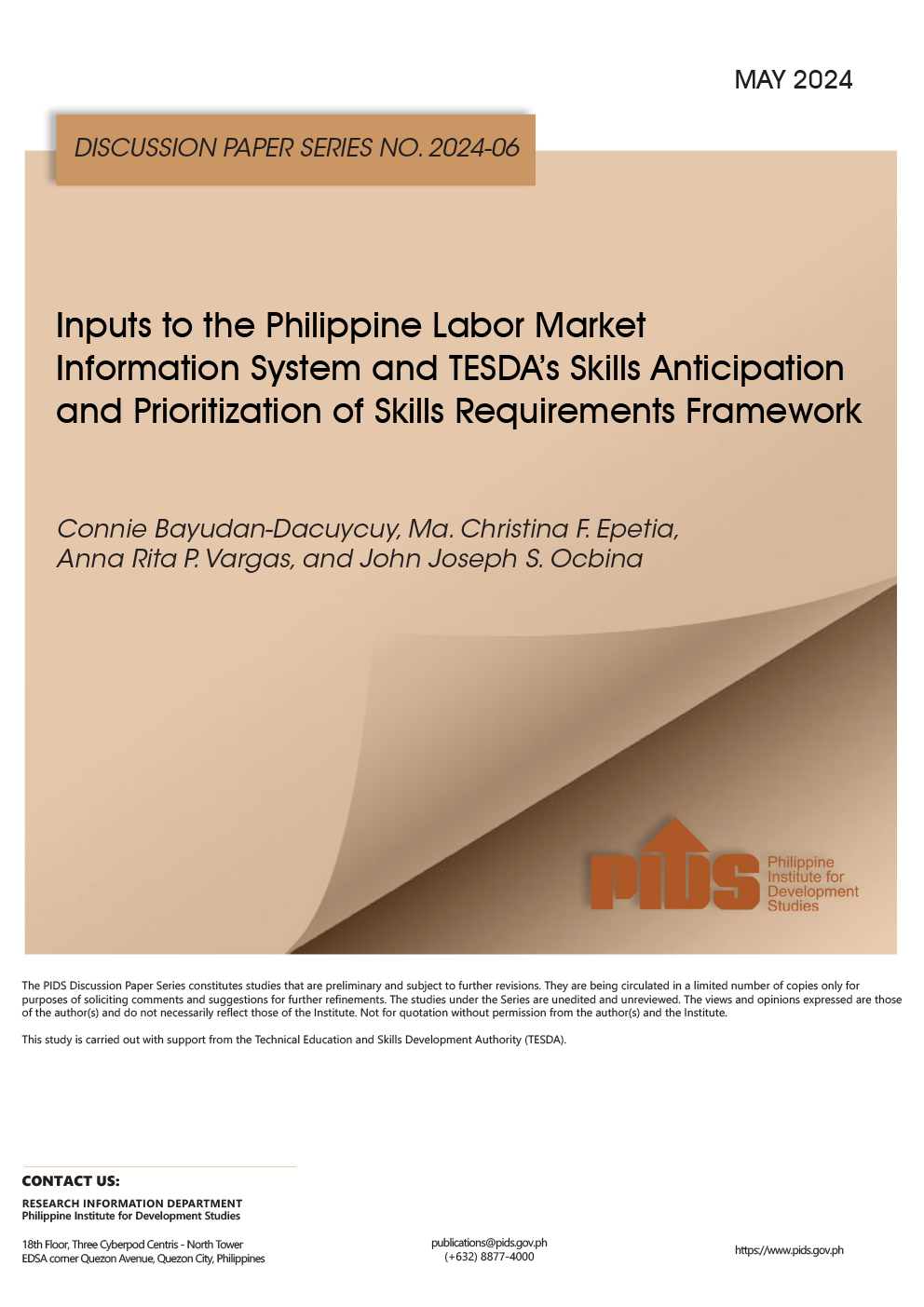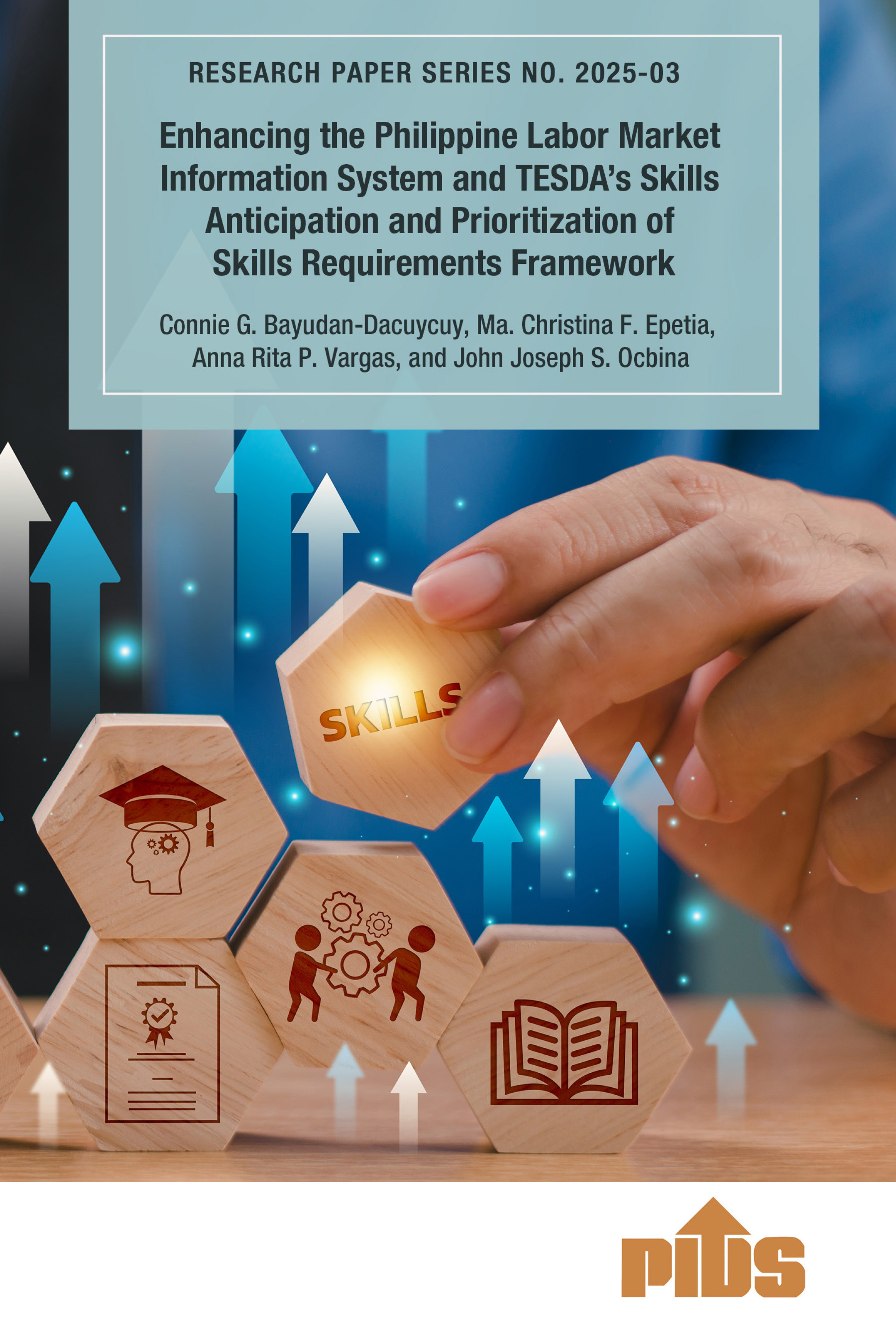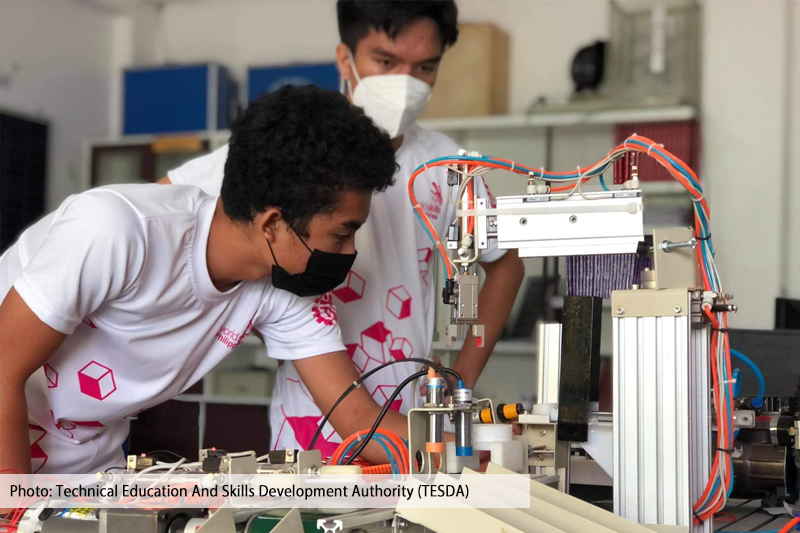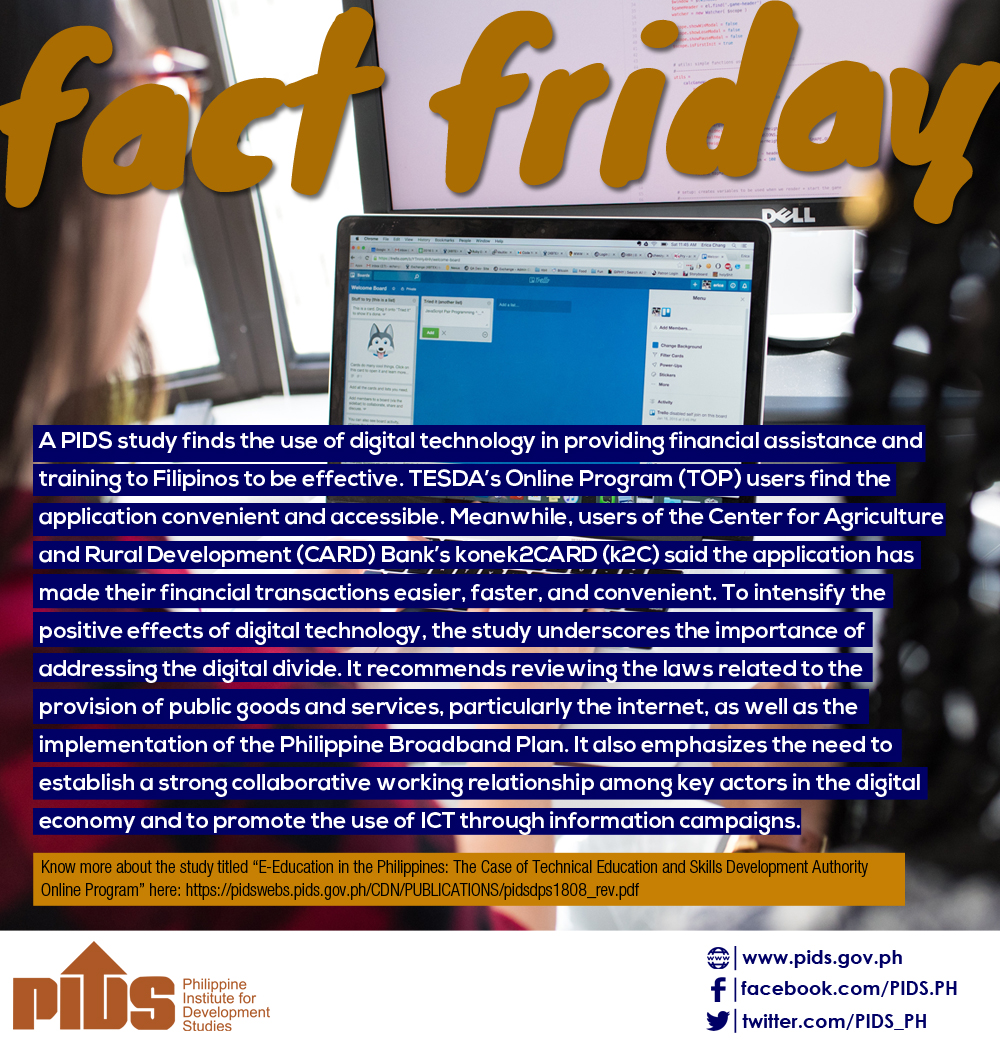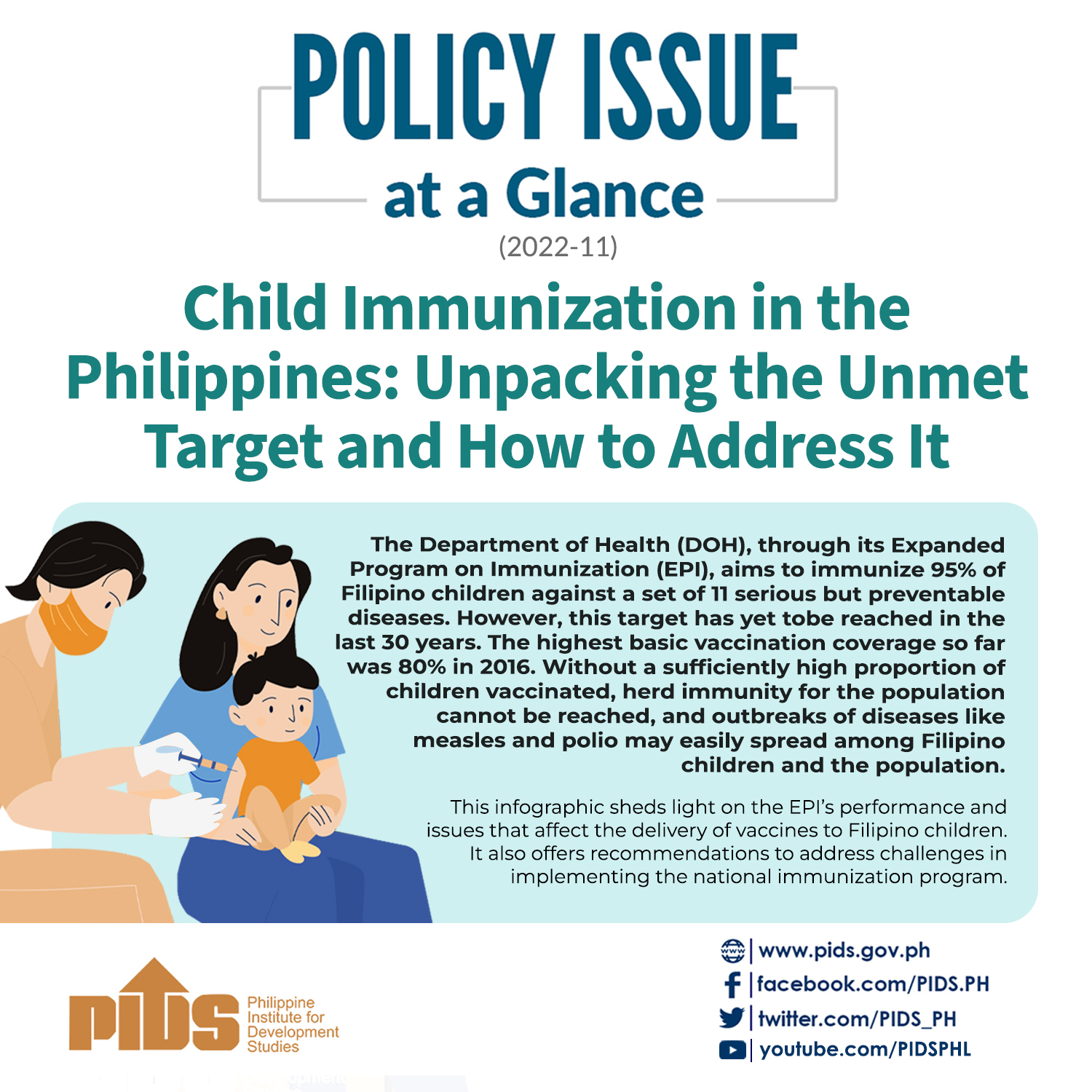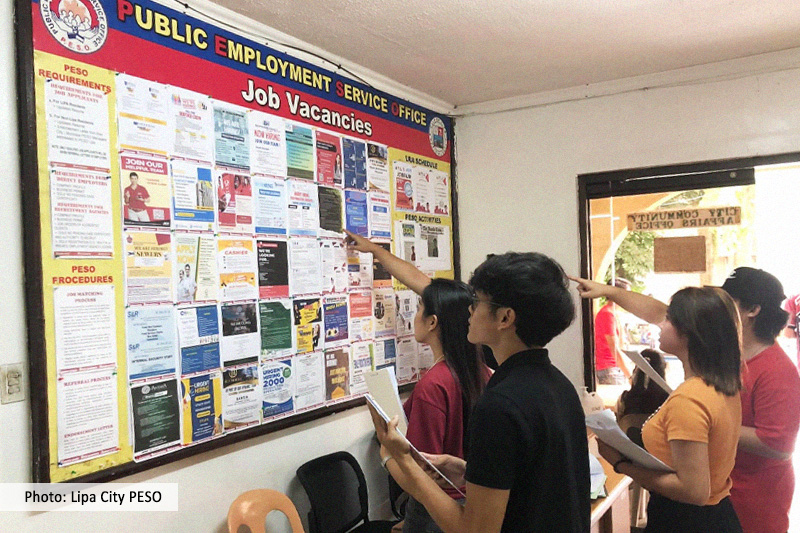
A recent study published by the Philippine Institute for Development Studies (PIDS) highlights the urgent need for robust partnerships and institutional arrangements among government agencies to tackle the ongoing issue of skills mismatch in the labor market.
Authored by PIDS Senior Research Fellow Dr. Connie Dacuycuy, former Research Fellow Dr. Ma. Christina Epetia, and Research Specialists Anna Rita Vargas and John Joseph Ocbina, the study titled “Inputs to the Philippine Labor Market Information System and TESDA’s Skills Anticipation and Prioritization of Skills Requirements Framework” underscores how coordinated efforts can significantly enhance the Skills Anticipation and Prioritization of Skills Requirements (SAPSR) Framework. The Technical Education and Skills Development Authority (TESDA) developed the SAPSR framework to bridge the skills gap between the workforce and the requirements of employers.
“As early as the 1970s, the Philippine higher education system was producing a supply of college graduates higher than the economy’s capacity to absorb highly educated workers,” the authors observed. Recent evidence still indicates that 65 percent of graduates fail to secure jobs in their desired sectors due to skill deficiencies. Furthermore, a substantial portion of both college and technical education graduates find themselves either overqualified or underqualified for their current roles.
The authors note that skills mismatch lead to lower wages and diminished job satisfaction among workers, reduced productivity among companies, and increased unemployment and decreased competitiveness in the economy.
To address these challenges, the authors recommend enhancing institutional collaboration, particularly through the establishment of a standardized skills taxonomy to support the SAPSR Framework. This skills taxonomy would serve as a common framework for organizing and classifying skills, improving data accuracy, forecasting capabilities, and facilitating expert discussions.
The Department of Labor and Employment (DOLE) was urged to lead this initiative in partnership with key agencies such as TESDA, the Commission on Higher Education, Department of Education, Philippine Statistics Authority, Department of Trade and Industry, and the National Economic Development Authority, alongside private sector stakeholders. “Involving these stakeholders ensures that sectoral inputs and concerns are accounted for, increasing commitments to participating and sustaining data collection initiatives,” stressed the authors.
Moreover, effective skills-occupation mapping, using standardized classifications like the Philippine Standard Occupational Classification (PSOC), is identified as another critical area benefiting from interagency cooperation. By adopting such systems, agencies can enhance the specificity of skills data, thereby improving forecasting and addressing skills gaps more efficiently.
The importance of enhanced data dissemination and stakeholder engagement was stressed in addition to improving data systems. DOLE and TESDA are encouraged to use modern communication tools such as websites and dashboards to share data and insights widely. This approach will ensure that policymakers, students, jobseekers, and the academic community can make informed decisions regarding career and educational choices.
The authors further urge the government to enhance the Public Employment Service Office (PESO), and build stronger partnerships with local higher education institutions (HEIs) to broaden the reach and effectiveness of the SAPSR. They emphasize that local government units play a vital role in improving job matching and overall service delivery. Investments in local capacity and expertise in data analysis are crucial in ensuring long-term success.
International partnerships can also provide additional support through technical assistance, funding, and knowledge sharing. These collaborations can offer valuable insights and resources, facilitating a more effective and sustainable labor market information system.
Read the full study at https://bit.ly/pidsdp2024-06.###

